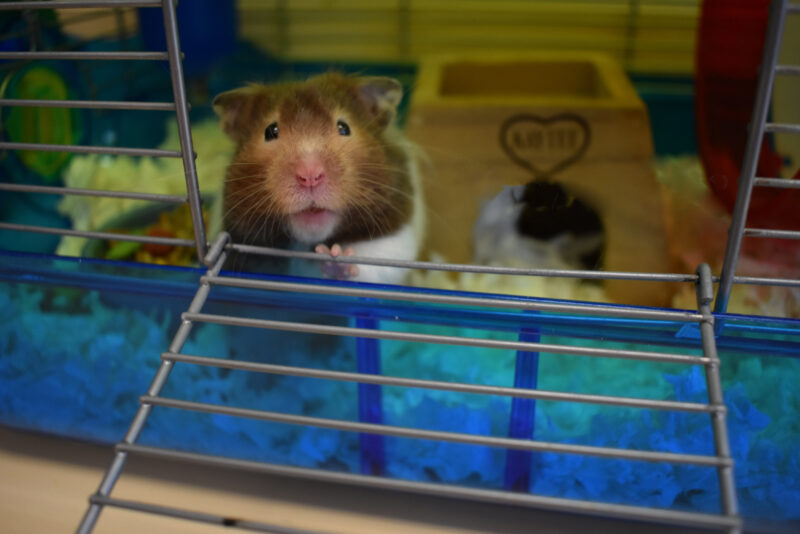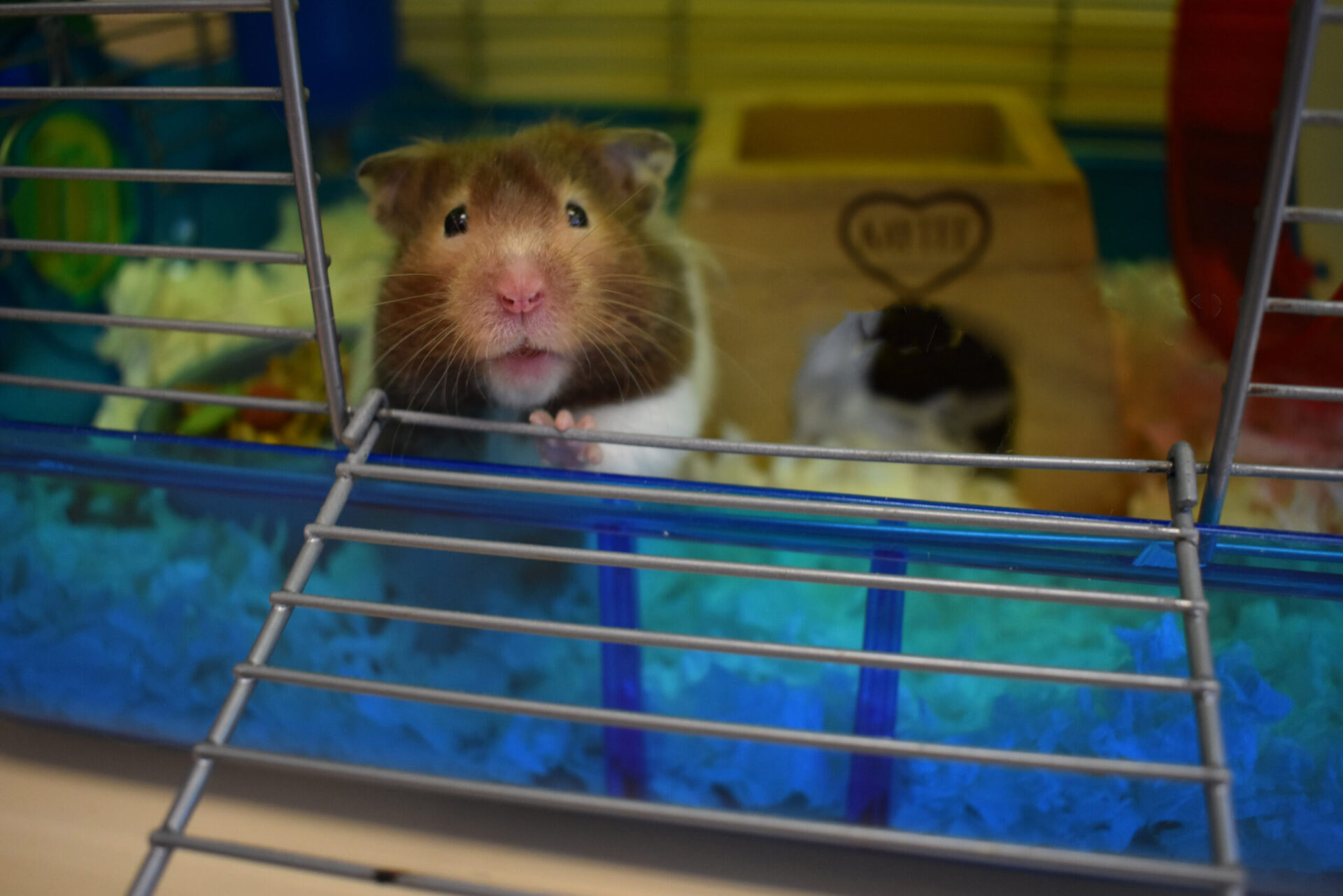
General Considerations:
- Unlike other small pet rodents, hamsters typically fare best when housed alone.
- While considered “low maintenance” or a “starter pet”, hamsters are unique animals and require proper care and feeding to stay healthy.
- Hamsters can be startled easily. Take care to be calm and quiet around them, especially in the first few weeks in your home. Positive reinforcement with treats can help to get them used to you and enjoy being held and petted.
- Hamsters are generally nocturnal and are likely to be more active at night.
- Hamsters teeth grow continuously. They will need a proper diet and chew toys to ensure their teeth do not overgrow.
Lifespan:
- Pet hamsters typically live for approximately 2 years. Some can live up to 5 years.
Housing:
- In most cases, a cage designed for hamsters is the best habitat for your pet. While colorful cages with lots of tubes are fun and interesting, they can be difficult to keep clean.
- If you choose to have tubing in your hamster’s cage, ensure the sizing of the tube is appropriate for your hamster breed. Some dwarf hamsters will fit fine in the commercially available tubing, but larger Syrian hamsters will likely not fit.
- Any enclosure you choose will need to be cleaned regularly, so plan to make that part of your regular routine. Daily spot cleaning and weekly deep cleaning with bedding changes works well. When deep cleaning, you can leave a bit of the old bedding in the enclosure to retain the hamster’s scent.
- Aquariums can work, but they need to be cleaned more frequently so that there is no ammonia built up which can be harmful to your pet’s respiratory system.
- Don’t wait for the cage or enclosure to begin to smell before cleaning.
- Be sure to keep their water bottles, bowls and other items clean as well.
- Paper bedding or aspen can be used as a bottom layer. Avoid cedar as it can cause respiratory issues.
- Nesting material, such as tissue, soft paper towel or hay and a nest box which can be purchased or home made from a safe cardboard box. Be sure to remove metal, plastic or other hazardous materials.
Food and Water:
- Pellets formulated for hamsters provide the most well-rounded nutrition for your pet
- Mixed grain and seeds for small rodents can be added for variety but should not replace pellets. If you feed mixed food (seeds, grains, dried vegetables, pellets), be sure to not replace the food until the hamster has emptied the dish. Otherwise they may pick their favorites, but not get their full nutritional needs.
- Additional fresh vegetables and fruits can be a fun way to add interest for your pet: apples, bananas, blueberries, broccoli and carrots are all great occasional treats.
- Cooked pasta, whole grain bread, cooked plain potato and cooked plain rice are a nice treat in small quantities.
- Commercially made treats from pet stores are also a safe and fun way to add variety to your pet’s diet.
- Water – A water bottle with spout is best and should be changed with fresh water daily. Be cautious to not use chlorinated tap water.
Supplies:
- Wood blocks and houses
- Small cardboard boxes
- Small willow balls
- Apple sticks
- Hidey box
- Water bottle(s) with spout
- Shallow ceramic bowls for food
- You may wish to provide a wheel for them to run on. Solid wheels are safest for their feet.
Grooming and Care:
- Pet hamsters will groom themselves regularly as they like to stay clean and owners do not generally need to clean or bathe your hamster. Keeping their cage clean will help with this.
- If you have a long-haired hamster, you may need to brush them occasionally to ensure a healthy hair coat.
- If you notice a pet hamster is not grooming as usual, it may be a sign of an underlying health or nutrition issue. Contact your veterinarian for guidance.
Fun Facts:
- Hamsters like sleeping in an enclosed space
- Hamsters hoard food in their cheeks. They have pouches in their cheeks that they will store food in for later!
- They have a high metabolism and enjoy exercise, although they might enjoy nighttime runs on their wheel!


